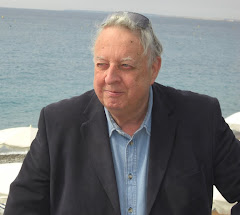Many major composers such as Wagner, Bruckner, and Mahler did not bother much about chamber music. When I was growing up, Mozart was mainly about his 41 symphonies, his concertos, and his operas. I have now realised that much of his genius is to be found in his vast library of chamber music. I have been sampling nine of his many sonatas for violin and piano and am considerably impressed with the quality of the music in these works. One marvels at the sheer inventiveness of the composer; music positively dripped from his fingers, whatever he wrote. Hardly any trace of routine, or composing by numbers.
Renaud Capuçon is turning out to be the 21st century's equivalent of Arthur Grumiaux in the 20th. He has long been one of my favourite modern violinists, especially in the classical music of Bach, Mozart, and Beethoven. He does not disappoint in these nine Mozart sonatas; he also appears to have a knack of picking excellent pianist partners: David Fray in Bach, Frank Braley in Beethoven, and Kit Armstrong in Mozart. I had never come across the Chinese-American pianist Kit Armstrong before, but he impresses greatly as Capuçon's partner in these Mozart sonatas. The sonatas are properly titled "piano and violin", since the piano has the dominant role in all of them. Armstrong and Capuçon play the works in a grand,18th century classical manner, with excellent rhythms. For a change, the recording engineers in Berlin in 2022 understand the balance between piano and violin and mainly get it right, something that does not always happen when a violin is pitched against a piano with the latter's superior dynamic range.
The DG-label set is highly recommended for the music, the playing, and the recording. Not too often all things go right. In the current phase of my musical life, I incline strongly towards chamber music, and to the music of the 18th century. For much of my life, Mozart was usually regarded by me as a precursor to the "great" 19th century composers. Sometimes, old age brings a more realistic evaluation. The music of Mozart will outlast me -- and any 21st century composers -- for more than the next millennium.
